Shobha Warrier/Rediff.com
'Corporates decide the development and social needs of the people in Gujarat. It is not that Modi is the new inventor of Gujarat.'
Social scientist Dr P Radhakrishnan, whose new book Political Villainy, UPA's Fall, AAP's Surge hit the stands recently, discusses the social implications of the 2014 election with Rediff.com's Shobha Warrier.
As a social scientist, what do you attribute the fall of the UPA to?
Corruption, crony capitalism, drifting, dithering, policy paralysis, lack of transparency and accountability, autocratic and confrontationist style of functioning in Parliament and outside, attempts to subvert the Constitution and circumvent the judiciary, disconnect between the rulers and the ruled, in particular neglect of the vast masses of the poor, bringing back caste centre stage to vote bank politics -- a throwback on the early 20th century; and so on.
Do you think the people of India are aware enough to punish the corrupt rulers?
People are certainly aware; and the general election may have the largest turnout of voters.
People may try to bury deep the malaise of dynastic rule by the Congress and regional parties like the Dravida Munnetra Kazhagam.
Much depends on how committed, dynamic and effective the Election Commission is and how free, fair, and well-informed the election would be.
But in what sense can people punish the corrupt rulers? Regime change is not punishment. It is at best an event after loot and scoot by the corrupt. They do not get punished and their loot is not confiscated.
Please ...
'Arrogance made UPA-2 indulge in every conceivable form of misdeeds'
Image: Prime Minister Manmohan Singh with Congress President Sonia Gandhi.Photographs: Press Information Bureau Shobha Warrier/Rediff.com
Was it arrogance and overconfidence that felled the UPA?
It was arrogance, brazen mendacity in power play (recall that obnoxious phrase 'coalition dharma'), and rather than overconfidence, lack of confidence in itself made UPA-2 indulge in every conceivable form of misdeeds of which corruption was the most virulent.
Would you call UPA-2 the most corrupt rule in independent India?
Corruption was always there in India's governance since Independence. Its first large-scale bout was during 1991-1996 when P V Narasimha Rao was the prime minister. However, four factors prevented corruption from being as alarming and appalling as during UPA-2:
One, Sonia Gandhi mourning her husband's assassination and keeping away from politics;
Two, Narasimha Rao ignoring her in the affairs of the Congress and of governance;
Three, introduction of economic liberalisation only in 1991 because of which the evils of crony capitalism did not appear so flagrant as during UPA-2;
Four, the apex court's timely activist and interventionist posture against corruption.
Please ...
'Anna didn't realise that the evils of body politic can't be fought without being part of it'
Image: Activist Kisan Baburao 'Anna' Hazare meditates at Rajghat.Photographs: Reuters Shobha Warrier/Rediff.com
As a social scientist, do you see the surge of the Aam Aadmi Party as a result of the disgust and disappointment of the public with corrupt politics?
There was disgust and disappointment with corrupt politics even earlier. As there was no attempt at mass mobilisation, people tolerated it.
Between 1991 and 2013, there was massive growth of educated urban youth along with the growth of crony capitalism.
The belated initiative, India Against Corruption, was well thought and involved some of the best brains in the country.
From this to the Anna Hazare movement was a short step.
Launching of the AAP and its surge were direct outcomes of the success of this movement.
Anna Hazare made corruption a rallying point and there was a country-wide groundswell to the movement.
Anna did not realise that institutional evils of the body politic cannot be fought effectively without being part of the same institutions.
Launching of the AAP and its direct action against these evils were the right things to happen.
Please ...
'One can hate Kejriwal or term him an anarchist, but the majority will see him as a crusader'
Image: Arvind Kejriwal in Mumbai.Photographs: Uttam Ghosh/Rediff.com Shobha Warrier/Rediff.com
The Aam Aadmi Party started with a lot of goodwill; but many are of the opinion that Arvind Kejriwal lost all that with his open admission that he was an anarchist and the way the party threw away an opportunity to be an alternative to the corrupt rule in Delhi. Do you agree?
No. For placing in perspective Kejriwal's actions when in power, it is crucial to understand four issues.
One, the AAP did not have a clear mandate to rule. Kejriwal accepted Congress support mainly to avoid another assembly election immediately. Before the swearing-in, he made it clear that he did not expect his ministry to last long, he would not make any compromise with the Congress and BJP, and he would go ahead with the AAP's election manifesto.
Two, anarchy means a social structure without government or law and order.
Three, Kejriwal's activist posture made it clear to the nation as a whole that by allowing the Delhi government to have only elected chief minister and other ministers and not the vital law and order machinery; and the Centre continuing its control in large parts of Delhi's governance were absurd and a mockery of the Delhi assembly and elections to it.
Four, When streets erupt in a democracy, it is nearly always because institutions are not delivering as they had promised to. It is never a good idea to barricade popular voices by institutional walls.
The AAP has forced us to discuss all these issues again and that can only be good for democracy.
The AAP has from day one made it clear that it would resort to unconventional means, if required, to achieve its goals. Some called it anarchy while many called it revolution.
One can hate Kejriwal, ignore him or term him an anarchist but the majority will see him as a crusader who had questioned the current system and asked the most difficult questions which the mainstream parties are scared to ask.
He will be seen as a messiah who had sacrificed power just to fight against crony capitalism and corruption in this country.
Please ...
'Modi is close to power at the Centre and yet away from it'
Image: Narendra Modi with BJP President Rajnath Singh.Photographs: Courtesy BJP Gujarat unit Shobha Warrier/Rediff.com
Do you feel Kejriwal and the party are more into theatrics than actual work?
There has been no democracy without theatrics. Theatrics comes first as democracy is a rhetoric of expectations and rhetoric can work best through theatrics.
Good and actual work may or may not emerge from theatrics. That depends on the efficacy of the acts and earnestness and ingenuity of the actors.
As the AAP is still nascent, it is premature to be judgmental about it.
As the opinion polls say, do you see Narendra Modi becoming the next PM?
Modi has risen from the ranks, the grassroots and has his ears to the ground. He is known for hard work, punctuality, administrative acumen, penchant for perfection, success in instilling some of his qualities in his government staff.
However, with Godhra still haunting him and with his Hindutva baggage, it is doubtful if the electorate will allow the nation to lurch from one disaster to another.
Though Modi started his election campaign in a big way, Kejriwal is going full throttle against him for, among other things, being a crony of the Adanis, Ambanis, and other capitalists has made him jittery.
All that one can say now is Modi is close to power at the Centre and yet away from it.
Please ...
'Modi made Gujarat highly undemocratic'
Image: Narendra Modi at his office in Gandhinagar.Photographs: Rajesh Karkera/Rediff.com Shobha Warrier/Rediff.com
Modi cites the Gujarat model as an example for transparent and corruption-free governance. What is your take on the Gujarat model?
The Gujarat Model or 'Modi made Gujarat' is highly undemocratic and autocratic where decisions are not taken collectively by the executive or bureaucracy or representatives of the people.
The corporates decide the development and social needs of the people. It is not that Modi is the new inventor of Gujarat.
Gujarat has long been in the hands of baniyas who trade even politics.
As what constitutes development is still a moot issue it is difficult to say there is something as the 'Gujarat model'.
While the claim of transparent governance is questionable, the general perception is that there is much less corruption in Gujarat, though persons like Kejriwal would refute it.
Please ...
'If Rahul Gandhi succeeds in rejuvenating the Congress with the young, it may overcome its isolation'
Image: Congress Vice-President Rahul Gandhi at the All India Congress Committee meeting in New Delhi.Photographs: Adnan Abidi/Reuters Shobha Warrier/Rediff.com
How will the isolation of the Congress in many states, including Tamil Nadu, affect the party and its heir apparent, Rahul Gandhi?
I do not think the Congress has any future. Though half of India's population is young and by 2020, India is set to become the world's youngest country.
As The Economist of June 15, 2013 reported, it is the young who should really moan: About the elderly who clog Indian politics, and a stultifying culture of deference to the old.
Manmohan Singh, at 80, is one of the world's oldest leaders and his cabinet creaks with pensioners.
Pranab Mukherjee, the president, is 77.
If Rahul Gandhi succeeds in rejuvenating the Congress with the young, it may overcome its isolation.
For the first time, we have three fronts in Tamil Nadu without the Congress as an ally.
Please ...
'Vijayakanth cannot see beyond his caste, beyond his nose'
Image: Desiya Murpokku Dravida Kazhagam leader Vijayakanth.Photographs: Courtesy DMDK Web site Shobha Warrier/Rediff.com
How will this election change the social dynamics of Tamil Nadu politics?
Tamil Nadu politics is in disarray. Each party is a front in itself and an affront to other parties.
For Tamil Nadu what matters is the assembly election and not the general election. In the general election, no single party may get majority of the seats.
Do you see the DMK's fall and Desiya Murpokku Dravida Kazhagam leader Vijayakanth's rise in Tamil Nadu?
The DMK's fall may benefit Vijayakanth only marginally and may not result in his rise as such.
Vijayakanth cannot see beyond his caste, beyond his nose, and beyond Tamil Nadu.
Please ...
'Prakash Karat has pushed back Indian Communism to the Stalinist era'
Image: CPI-M General Secretary Prakash Karat.Photographs: Getty Images Shobha Warrier/Rediff.com
Do you think the Communist parties are nearing their end with no states to rule except small Tripura? Has Communism as an ideology become redundant?
The Communist Party of India-Marxist, the principal Communist party, is bereft of mature leadership and has turned the underlying logic of Marxist theories on its head by switching to the trite proverb that he who builds on the people, builds on mud.
Instead of building up a nationwide movement, the party has frittered away people's goodwill.
Prakash Karat has pushed back Indian Communism to the Stalinist era, which is an abhorrent anachronism.
Communism as an ideology is still relevant; but the corporate communism of Prakash Karat and Sitaram Yechury is ruinous.
Will the 2014 election be a watershed in India's history?
The election may not be so much a watershed as a washout in the sense of returning a hung Parliament. This is nothing new to the country.
The nation's break from the dominant parties for sometime itself may have a cleansing and sobering effect on its polity.
Such a break will be to the advantage of the AAP if it is really clear in its vision and earnest in its mission of establishing a model and an alternative politics of clean governance.

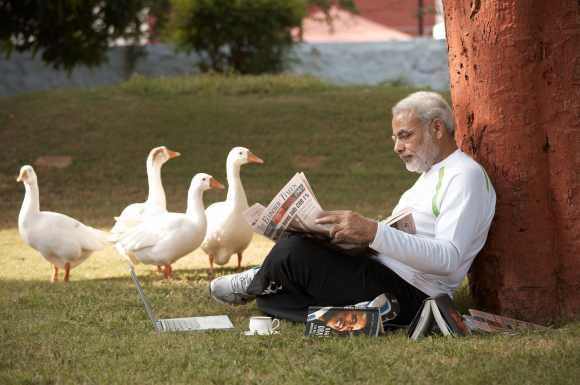
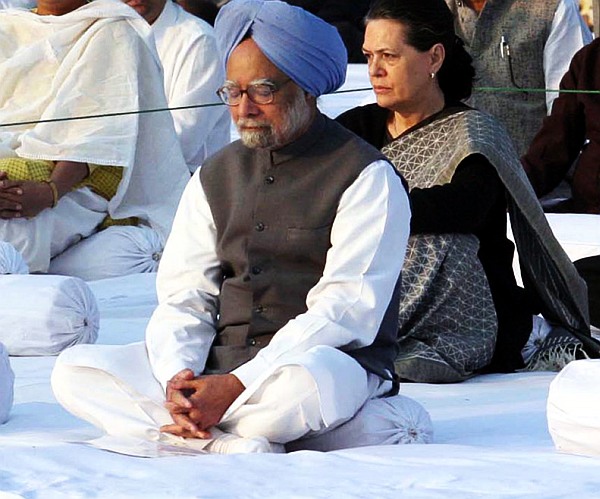

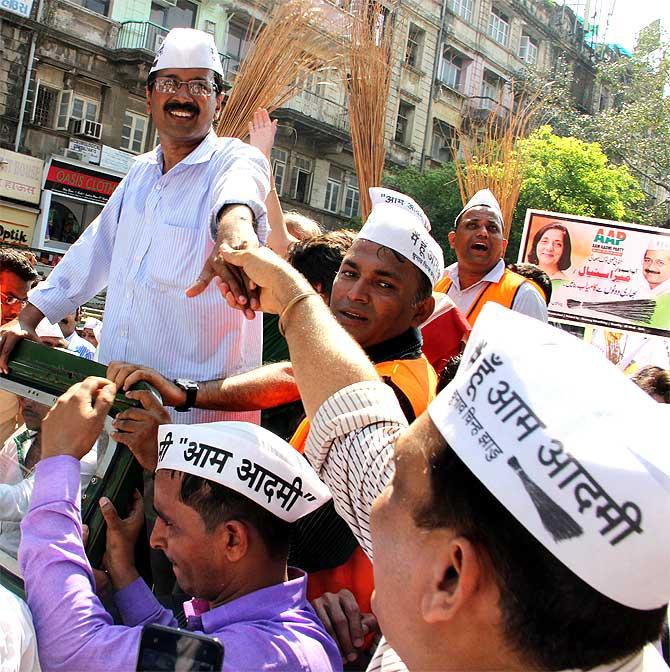
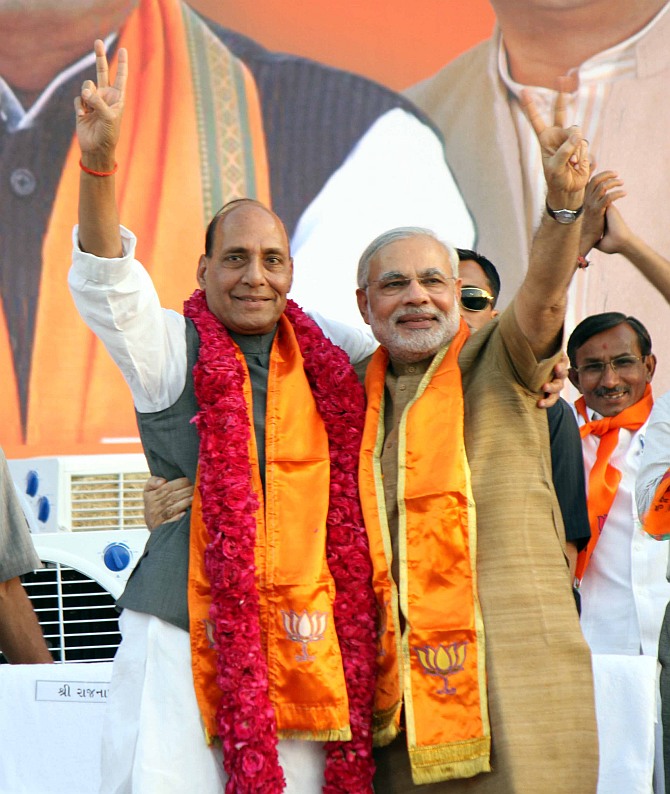
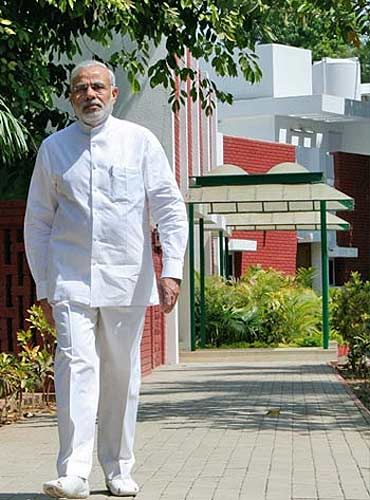
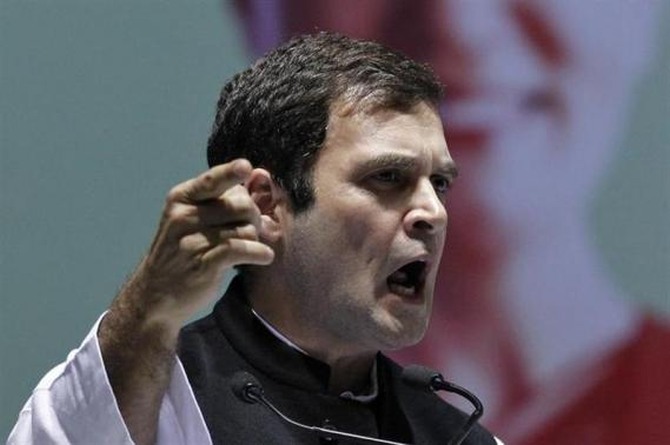
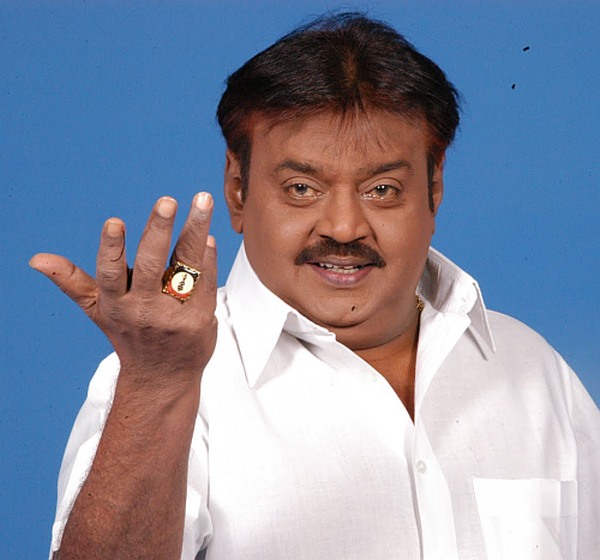
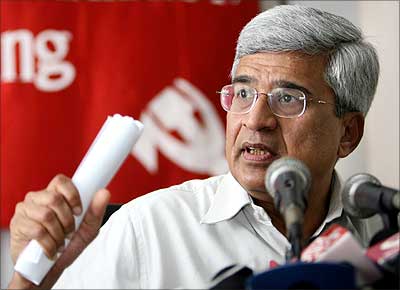
article